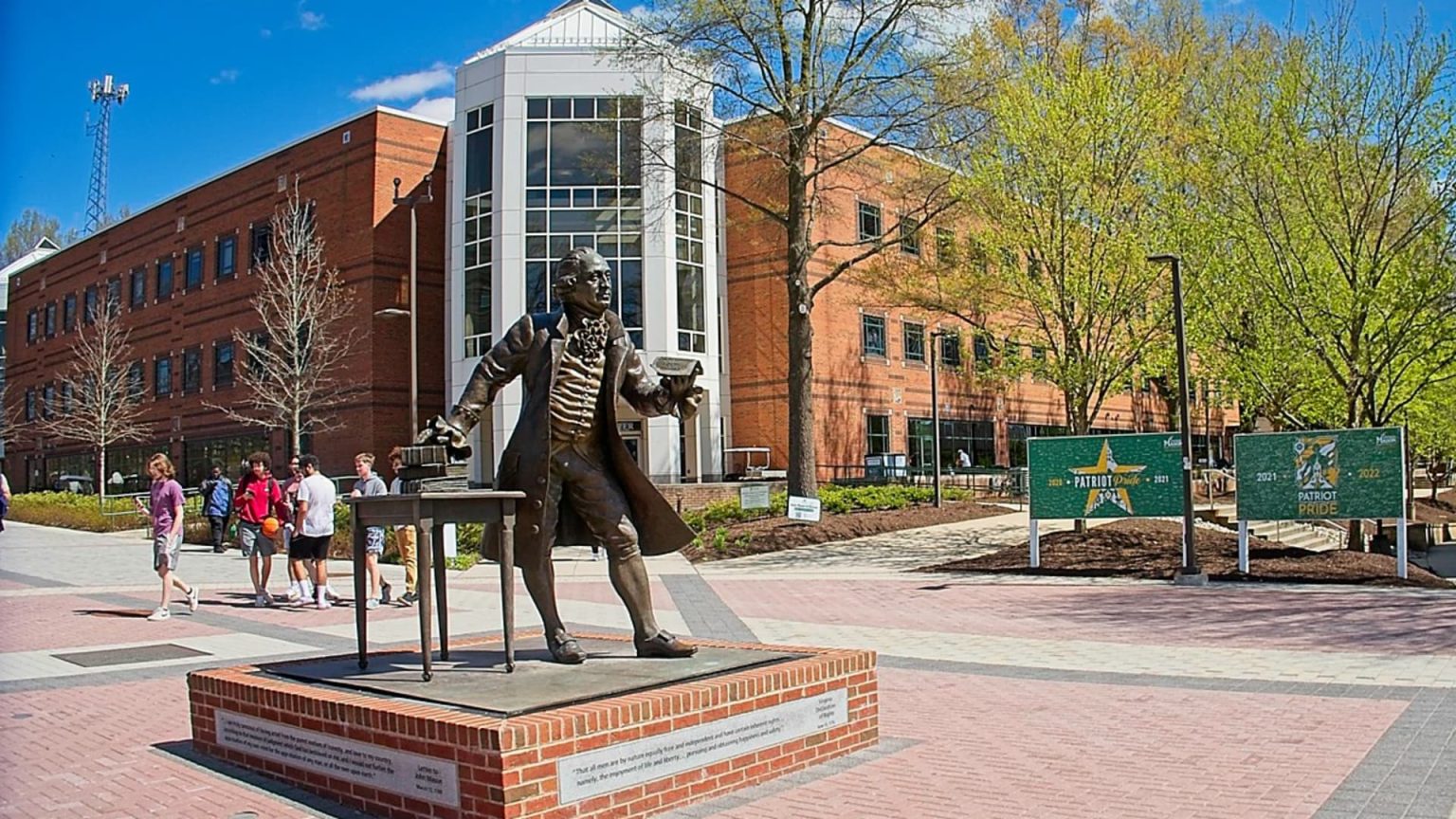The Department of Education has initiated an inquiry into George Mason University (GMU) regarding its hiring and promotion practices. This investigation stems from a complaint filed by faculty members who allege racial biases in personnel decisions, potentially breaching civil rights regulations. As the second federal probe of GMU in recent weeks, the outcome could endanger the university’s federal funding if violations are confirmed.
| Article Subheadings |
|---|
| 1) Investigation Launched |
| 2) Allegations Against GMU |
| 3) Responses from Officials |
| 4) Recent Context and Consequences |
| 5) Broader Implications for Higher Education |
Investigation Launched
The Department of Education’s Office for Civil Rights has announced its decision to investigate George Mason University following a complaint lodged by several professors. The inquiry aims to determine whether the university’s hiring and promotional practices systematically favor certain racial groups, allegedly creating a racially hostile environment that may contravene Title VI of the Civil Rights Act of 1964. This decision comes just weeks after another federal investigation into GMU focused on similar issues, reflecting an intensified scrutiny of the university’s policies.
Allegations Against GMU
Professors at GMU have asserted that the university’s recent personnel actions have displayed preferential treatment towards individuals from underrepresented groups. The complaints stem from changes initiated in 2020 when Gregory Washington took office as GMU’s first Black president. Faculty members have claimed that advisory roles focused on racial equity and anti-racism task forces have led to hiring decisions that prioritize diversity over candidate qualifications. The exact nature of the allegations includes a claim that the university’s leadership advised that diversity could supersede merit in hiring processes.
Responses from Officials
In response to the inquiry, GMU has stated that it has not received prior notice of the investigation and only learned of it simultaneously with the media. In a formal statement, the university asserted its commitment to compliance with federal regulations, reiterating its ongoing review of policies to ensure adherence to legal mandates.
“George Mason University again affirms its commitment to comply with all federal and state mandates,”
the statement read, affirming transparency in its practices. Furthermore, Craig Trainor, the acting assistant secretary for civil rights, emphasized the department’s intent to ensure fair evaluations based solely on merit, rather than on racial identity.
Recent Context and Consequences
The inquiry marks the second investigation this month, as GMU has also been scrutinized for allegedly creating a hostile environment for Jewish community members. This additional investigation aligns with broader patterns targeting universities perceived as promulgating progressive ideologies or having diversity-related policies. GMU’s situation is mirrored in other notable cases, such as the recent investigation involving the University of Virginia, which drew heightened attention to DEI (Diversity, Equity, and Inclusion) policies in higher education. Following directives from the Trump administration, warnings have been issued regarding potential federal funding repercussions for institutions found in violation of civil rights laws.
Broader Implications for Higher Education
George Mason University is one of several institutions currently facing federal probes under the scrutiny of the prior administration, joining the ranks of universities such as Harvard and UC Berkeley. This trend has sparked debates over the role of federal oversight in higher education. The consequences of these investigations could reshape hiring practices and policies at institutions across the nation, particularly in jurisdictions with political figures who favor a more conservative approach to education. GMU’s alignment with philanthropic institutions and its past initiatives may be called into question as scrutiny increases.
| No. | Key Points |
|---|---|
| 1 | The Department of Education has opened an investigation into GMU’s hiring practices. |
| 2 | Complaints allege that racial biases may favor underrepresented groups over qualifications. |
| 3 | George Mason President, Gregory Washington, took office amid shifting DEI policies. |
| 4 | Recent federal probes could threaten GMU’s federal funding if violations are affirmed. |
| 5 | The investigations reflect broader issues of diversity and equity in higher education nationwide. |
Summary
The ongoing investigation into George Mason University serves as a critical juncture in the discourse surrounding equity and diversity practices in higher education. With substantial implications for the university’s funding and reputation, the outcome of this inquiry could incite broader discussions regarding the intersection of race, meritocracy, and inclusiveness on campus. As the scrutiny from federal authorities intensifies, universities across the country will likely reassess their approaches to diversity and equity.
Frequently Asked Questions
Question: What prompted the Department of Education’s investigation into GMU?
The investigation was triggered by complaints from faculty members claiming that hiring practices at GMU favor certain racial groups over others, which could potentially violate civil rights laws.
Question: What are the potential consequences if GMU is found in violation?
If the investigation concludes that GMU has violated civil rights regulations, it risks losing federal funding for its programs.
Question: How do the recent investigations reflect national trends in higher education?
These investigations highlight an increasing scrutiny of diversity, equity, and inclusion policies at universities, with potential repercussions for institutions perceived as promoting progressive agendas.


